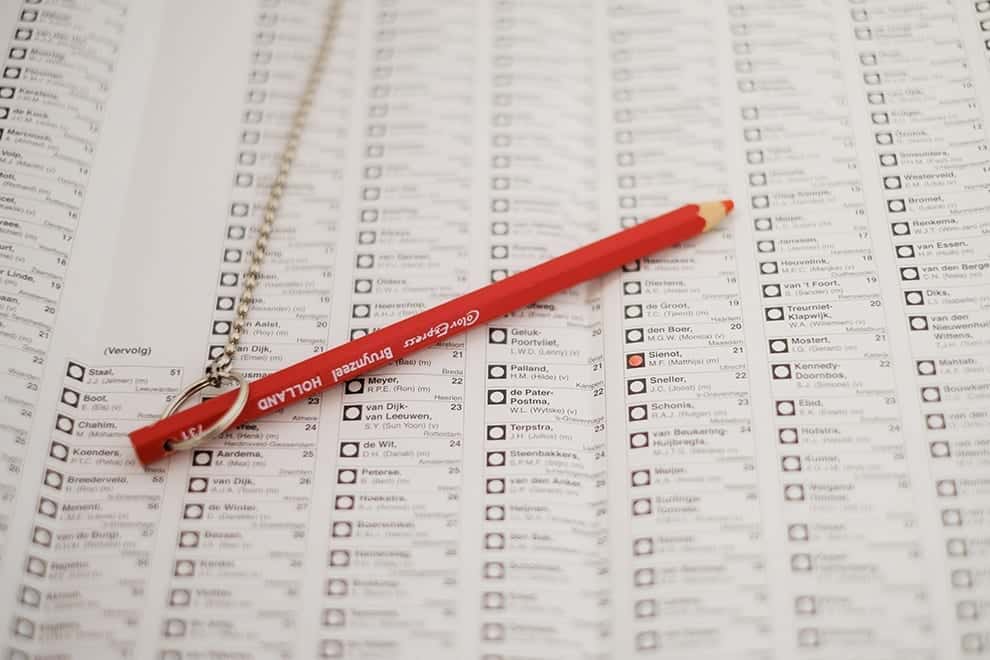Don’t call it a comeback

author: connor macneil | contributor

Credit: Sebastiaan ter Burg via Flickr
While the election may not have much impact on who will lead the Netherlands, it has set the stage for domestic and European politics… for better and for worse.
In the months leading up to the Dutch election, anti-Islamic firebrand Geert Wilders and his Party for Freedom (PVV) were predicted to win the most seats in Parliament come polling day March 15. Recent terrorist attacks and refugee flows into Europe from the Syrian civil war had shifted public support to Mr. Wilders, who threatened to leave the European Union and shut the borders to all immigration by Muslim refugees. Wilders had painted his campaign as a fight to “Stop Islam,” a campaign slogan used by the PVV on twitter and on train advertisements. While Mr. Wilders may be one of the most controversial politicians in the Netherlands, his message is familiar.
The PVV’s rhetoric would not sound out of place at a campaign rally for American president Donald Trump. President Trump called for a “complete and total shutdown of all Muslims entering the United States” after the Pulse nightclub shooting, perpetrated by an American-born Muslim. This sentiment is echoed by French Presidential Candidate Marine Le Pen of the far right “National Front” who seeks to end the “Islamisation of France” and has rallied against the secular protections afforded to French Muslims.
Just as the victory of President Trump has lent momentum to far-right political movements throughout the globe, the anticipated success of Geert Wilders and the PVV was supposed to signal the beginning of another tumultuous year for European liberals. Had Mr. Wilders succeeded, Ms. Le Pen and her National Front would have received a much needed boost ahead of France’s presidential election in April. However, the Dutch levees have held.
Incumbent prime minister Mark Rutte and his center-right liberal “People’s Party for Freedom and Democracy” (VVD) held on to their position as the dominant party in the Dutch Parliament. The PVV lost much of their strong lead as Mr. Wilders refused to take part in the electoral debates, instead taking to twitter to spread his campaign message. Mr. Rutte was also boosted after standing up to Turkish president Reccep Tayyip Erdoğan over a diplomatic dispute.
After Turkish diplomats were barred from campaigning inside the Netherlands for an upcoming Turkish constitutional referendum, President Erdoğan referred to Mr. Rutte and the Dutch government as “Nazi remnants” and blamed the Dutch government for the massacre of Muslims in Srebrenica during the Bosnian Civil War. Mr. Rutte did not bend. A combination of these factors vaulted the VVD ahead of the PVV. The PVV gained a mere five seats in the 150-member Dutch Parliament, at the peak of their polling popularity the PVV were predicted to gain as many as 25 seats.
However, even if the PVV had succeeded in winning the most seats, it is unlikely Mr. Wilders would have become prime minister. Dutch parliament is composed of 13 different political parties and coalition is essential to forming government. All major parties announced during the campaign that they would refuse to co-operate with the PVV and Geert Wilders in forming a coalition. While the election may not have much impact on who will lead the Netherlands, it has set the stage for domestic and European politics – for better and for worse.
The election results hold encouraging signs for those who seek to stop the tide of far-right populism. Fears of a Trump- or Brexit-style poll upset for Wilders were allayed as the PVV unperformed the opinion polls. The voter apathy which aided Trump and the “Leave” vote was also not an issue for Dutch progressives. The election had the highest turnout in 30 years, with 81.4 per cent of the electorate casting a ballot. Left wing political parties such as the “GreenLeft” and social-progressive “D66” more than doubled their share of seats.
Perhaps these are signs that citizens are waking up to threats posed by right-wing radicals. America has seen massive protests against the Trump administration. Europe has seen a double-digit surge in popularity for centre liberal French Presidential candidate Emmanuel Macron and the German Social Democratic Party led by Martin Schulz. The feared storm of euro-skeptic anti-Islamic populism may end up being no more than a high tide.
Despite the failure of the PVV to grab the reins of the domestic political scene in the Netherlands, it has change the landscape forever. Even the victorious Mr. Rutte has started to adopt the rhetoric of the PVV, saying that immigrants to the Netherlands should “be normal or go away.” This is an allusion to the perceived lack of integration by Muslim’s into Dutch society. While the far right may not be able gain the electoral power that they desire in the coming year, they have altered the discussion on the free and open nature of western society forever.








